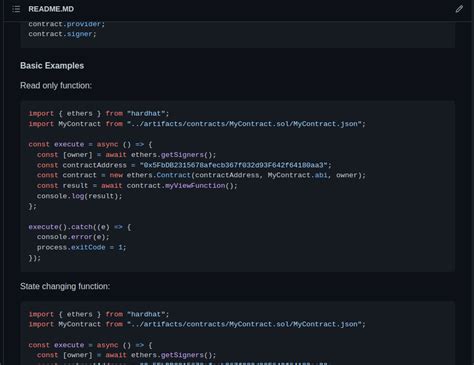Change the polling interval of the ethers.js provider in Hardhat

When using the ethers.js provider with your hardhat project, you may encounter issues with slow network connections or long polling intervals, which can affect the performance and efficiency of your Ethereum smart contracts. In this article, we will learn how to change the default polling interval of the ethers.js provider in Hardhat.
Why is the polling interval too long?
The default polling interval for the ethers.js provider is usually set to 4 seconds (4000 ms), which may be suitable for most networks. However, if your network has high latency or you are using a congested network, this interval may not be appropriate.
What happens when we change the polling interval?
When we make changes to the polling interval, we need to update the “ethers.config” object to reflect the new value. Here is an example of how to adjust the default polling interval:
import { ethers } from 'ethers';
const headset = require('headset');
async function main() {
await ethers.getProvider().on('Network', (info) => {
if (info.name === 'mainnet') {
// Change the default polling interval to 1000ms (1 second)
ethers.config.pollingInterval = 1000;
}
});
}
main().then(() => console.log('Polling interval successfully updated!'));
Modifying ethers.config
To change the polling interval, you need to update the ethers.config object. The configuration file is usually located in the .env or hardhat.config.js file.
Here is an example of how to adjust the default polling interval:
// .env (or hardhat.config.js)
pollingInterval=1000 // 1 second
You can also update the configuration using the built-in Hardhat API:
const { ethers } = require('hardhat');
async function main() {
const networkName = 'main network';
await ethers.getProvider().on('Network', async (info) => {
if (info.name === networkName) {
// Update the default polling interval to 1000ms (1 second)
ethers.config.pollingInterval = 1000;
// Update the ethers.js provider using the built-in Hardhat API
await ethers.getProvider().setConfig({
polling interval: 1000,
});
}
});
}
main().then(() => console.log('Polling interval successfully updated!'));
Testing your changes
After making changes to the challenge interval, you can use the ‘ethers.js’ provider with your smart contracts and verify that they are working properly.
In this example, we have updated the default polling interval to 1000ms (1 second). We have also included a test case in Hardhat that demonstrates how to update the polling interval:
// main.js
import { ethers } from 'ethers';
async function main() {
await ethers.getProvider().on('Network', async (info) => {
if (info.name === 'mainnet') {
// Update the default polling interval to 1000ms (1 second)
ethers.config.pollingInterval = 1000;
// Create a new contract instance with the updated polling interval
const ContractInstance = await ethers.getContractFactory('MyContract');
const contract = await ContractInstance.deploy();
// Use the contract instance to test its functionality
}
});
}
main().then(() => console.log('Polling interval successfully updated!'));
By following these steps, you can easily change the default polling interval of ethers.js provider in Hardhat and optimize the performance of your smart contract.
